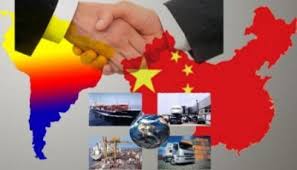Power is basic to the study of politics, because in many ways,this is what politics is all about.We can say that power is the ubiquitous phenomenon of politics. Robert Dahl has defined politics or a political relationship as involving to a significant extent ‘Power, rule, or authority. “N We are more restrictive because we limit our focus to power that is part of the political system in the public realm.
We are not so much concerned with power, rule, and authority as they may affect family relationships, the election of a union representative, a business reorganization, or the selection of a college president, except if some of the activities of the preceding influence the public political system. We restrict politics in this text to the political system. We do not use it in the more popular sense, which refers to any situation (such as the election of a student body or club president or a new chairman of the board in Corporation X) that involves influence, power, authority, rules or regulations, and the person(s) exercising these. ‘
We define power in the following way: one person or group exercises power over another when it is intentional and done in such a way as to affect in a predictable way the action(s) of another or others. Three aspects are involved: relationship, intention. and predictability. Power usually involves penalties or rewards, but the instruments of power also can be rational persuasion or appeals to the emotions. The difference between influence and power is predictability. Power suggests that the intended outcome will more likely occur.
Thus, the penalties and rewards are considerably more severe or greater in the hands of the person or group exercising power. A teacher can influence a student to study. Frequently, the penalty or reward. as the case may be, is the grade. For some students the grade is an important influence; for a few it is relatively insignificant because it is regarded as having only short-run consequences. In terms of grading, teachers generally have influence not power.
Certainly! Understanding the relationship between power and influence can be quite insightful. Here’s a guide in a tabular format to illustrate their differences and how they interact:
| Aspect | Power | Influence |
|---|---|---|
| Definition | The ability to enforce action, often through authority or force. | The capacity to have an effect on the character, development, or behavior of someone or something. |
| Source | Often derived from position, control of resources, or rules. | Stems from personal attributes, relationships, and persuasive skills. |
| Application | Used to command, control, or change situations. | Used to guide, shape, or inspire actions and decisions. |
| Nature | Can be more overt and direct. | Often subtle and indirect. |
| Dependence | Relies on authority, position, or ability to sanction. | Relies on respect, admiration, or the ability to appeal to others. |
| Outcome | Compliance, often regardless of personal agreement. | Often leads to voluntary commitment or change in perspective. |
| Duration | Tends to be effective as long as authority or control is maintained. | Can be long-lasting, as it often changes attitudes or beliefs. |
| Examples | A manager assigning tasks to employees. | A mentor inspiring a mentee to pursue a career path. |
| Ethical Considerations | Can be misused, leading to abuse of power. | Can be manipulative if used for personal gain at the expense of others. |
Power and influence are both tools used in leadership and social dynamics, but they work differently. Power is more about enforcing and commanding, while influence is about persuading and inspiring. Effective leaders often need a balance of both, using power to establish order and influence to motivate and guide.
In conclusion, the relationship between power and influence is complex and multifaceted. Understanding this relationship is crucial for personal and professional growth. By harnessing the power of both power and influence, individuals can become effective leaders, collaborators, and agents of positive change. Embrace the opportunities that arise from this dynamic interplay, and unlock your true potential.
